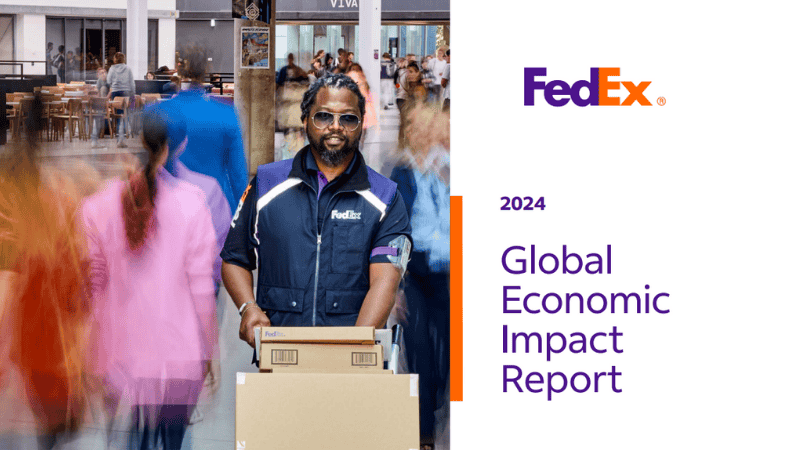
Tax & economic policy perspectives
U.S. tax policy
FedEx has long supported tax policy efforts that offer pro-growth, pro-business solutions that will power the economy, increase business investment, and expand job opportunities.
FedEx Corporation announced a number of major programs and investments following passage of the Tax Cuts and Jobs Act:
- More than $200 million in increased compensation, about two-thirds of which went to hourly team members by advancing 2018 annual pay increases.
- A voluntary contribution in 2018 of $1.5 billion to the FedEx pension plan to ensure we remain a well-funded retirement program.
- $1.5 billion to significantly expand the FedEx Indianapolis hub in a multi-year project.
- More than $1.5 billion to modernize the FedEx Memphis world hub in a multi-year project.
- A June 2018 purchase agreement of 12 Boeing 777 freighter and 12 Boeing 767 freighter aircraft worth $6.6 billion, bringing more efficient aircraft to our fleet as part of our aircraft modernization and sustainability strategy.
FedEx pays all of its taxes owed to local, state, federal and foreign governments.
Economic policy
FedEx is a major contributor to economic growth and innovation, both in the United States and abroad. We employ nearly 570,000 team members who work every day to deliver goods and services to businesses and consumers. With a fleet of more than 680 aircraft, more than 200,000 vehicles, we support the global supply chain, help open new markets for entrepreneurs and invest in technology and innovation for the future.
Measuring the FedEx Effect
FedEx connects economies, communities, and possibilities around the world. We call this impact the FedEx Effect, and each year we publish our annual Global Economic Impact Report to examine this effect which enables the success of our customers, builds prosperity in the communities where we operate, and accelerates the flow of goods and ideas that generate economic growth across countries and regions.
In Fiscal Year 2024, FedEx generated substantial economic impact worldwide:
- We contributed more than $85 billion in direct economic impact to the global economy.
- We indirectly created an estimated $39 billion in additional net economic output in the global economy.
- We spent $63 billion over the calendar year 2023, supporting an estimated 730,000 jobs at supplier companies.
- FedEx contracted with roughly 100,000 suppliers — 90% of which are small businesses.
2024 Global Economic Impact Report



Learn more about our extensive economic impact in the U.S.
News and updates
On March 27, 2020, the President of the United States signed the Coronavirus Aid, Relief, and Economic Security Act (the “CARES Act”). The CARES Act is intended to provide economic relief to U.S. citizens and businesses in response to the COVID-19 pandemic and includes a program providing a total of up to $4 billion in financial support to cargo air carriers, including FedEx Express, that may be used exclusively for the continuation of payment of employee wages, salaries, and benefits. After engaging in discussions with Treasury regarding the payroll support program under the CARES Act, we determined not to participate in the program.
FedEx takes pride in paying its full share of taxes and has paid almost $10 billion in total taxes in the U.S. during the last five fiscal years, contributing to tax revenues of the U.S. government. We have supported tax increases in some cases, particularly federal diesel and gasoline taxes, to fund badly-needed infrastructure in the United States.
In a Wall Street Journal op-ed, FedEx Corp. Chairman and CEO Frederick W. Smith discusses tax reform and the U.S. economy.
FedEx Express announced an additional $450 million investment in the FedEx Express World Hub in Memphis. This investment will accelerate the modernization and expansion project which was announced in March 2018 and now totals more than $1.5 billion.
FedEx Corporation announced three major programs following the recently enacted U.S. Tax Cuts and Jobs Act, committing more than $3.2 billion in wage increases, bonuses, pension funding and expanded U.S. capital investment.